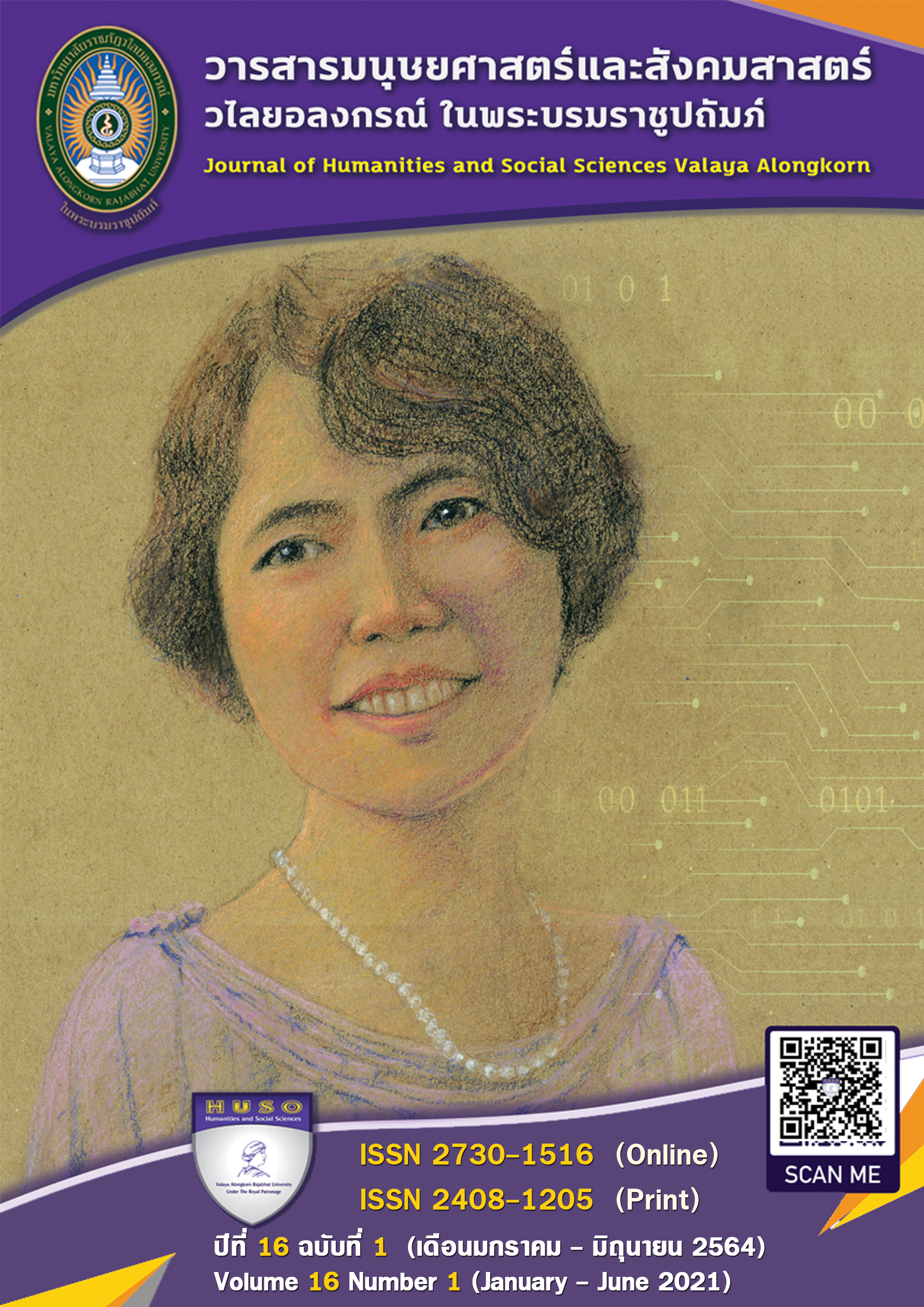JOB DESIGN BY JOB CHARACTERISTIC THEORY FOR ENHANCING EMPLOYEE’S WORK ENGAGEMENT AND JOB PERFORMANCE
Main Article Content
Abstract
Organizations have to adapt, change and develop to maintain performances in the world of business competition. One of the important interventions used in organizational development is job design. The most acknowledged concept is the Job Characteristic Theory which consists of skill variety, task identity, task significance, autonomy, and feedback. The critical psychological states and work engagement are the mediators between the relationship of job characteristics and job performances. Three main practices of job design are job rotation, job enlargement, and job enrichment. Organizations can evaluate the efficacy of job design by Motivating Potential Score from Job Diagnostic Survey. Basic psychological concepts and implementations for enhancing employees’ motivation and performances will be discussed.
Article Details
ลิขสิทธิ์บทความวิจัยที่ได้รับการตีพิมพ์เผยแพร่ในวารสารมนุษยศาสตร์และสังคมศาสตร์ วไลยอลงกรณ์ ในพระบรมราชูปถัมภ์ ถือเป็นกรรมสิทธิ์ของคณะมนุษยศาสตร์และสังคมศาสตร์ มหาวิทยาลัยราชภัฏวไลยอลงกรณ์ ในพระบรมราชูปถัมภ์ ห้ามนำข้อความทั้งหมดหรือบางส่วนไปพิมพ์ซ้ำ เว้นแต่จะได้รับอนุญาตจากมหาวิทยาลัยเป็นลายลักษณ์อักษร
ความรับผิดชอบ เนื้อหาต้นฉบับที่ปรากฏในวารสารมนุษยศาสตร์และสังคมศาสตร์ วไลยอลงกรณ์ ในพระบรมราชูปถัมภ์ เป็นความรับผิดชอบของผู้นิพนธ์บทความหรือผู้เขียนเอง ทั้งนี้ไม่รวมความผิดพลาดอันเกิดจากเทคนิคการพิมพ์
References
ของไทยในภูมิภาคอาเซียน. สำนักงานเลขาธิการสภาผู้แทนราษฎร. เข้าถึงจาก
https://www.parliament.go.th/ewtadmin/ewt/parliament
_parcy/ewt_dl_link.php?nid=46816&filename=foreign2_index
สำนักงานคณะกรรมการพัฒนาการเศรษฐกิจและสังคมแห่งชาติ สำนักนายกรัฐมนตรี. (2560).
สรุปสาระสำคัญแผนพัฒนาเศรษฐกิจและสังคมแห่งชาติฉบับที่สิบสอง พ.ศ. ๒๕๖๐ –
๒๕๖๔. เข้าถึงจาก https://www.nesdb.go.th/ewt_news.php?nid=6420
Bakker, A. B., & Albrecht, S. (2018). Work engagement: current trends. Career
Development International, 23(1), 4–11.
Bakker, A. B., & Demerouti, E. (2014). Job demands–resources theory. In Peter Y.
Chen, & Cary L. Cooper (Eds.), Work and Wellbeing: Wellbeing: A Complete
Reference Guide, Volume III. New York: John Wiley & Sons.
Bakker, A. B., Demerouti, E., & Euwema, M. C. (2005). Job resources buffer the impact
of job demands on burnout. Journal of Occupational Health Psychology,
22, 309–328.
Bakker, A. B., Hakanen, J. J., Demerouti, E., & Xanthopoulou, D. (2007). Job resources
boost work engagement, particularly when job demands are high.
Journal of Educational Psychology, 99, 274–284.
Belias, D., & Sklikas, D. (2013). Aspects of job design. International journal of human
resource management and research, 3(4), 85-94.
Christian, M. S., Garza, A. S., & Slaughter, J. E. (2011). Work engagement: A
quantitative review and test of its relations with task and contextual
performance. Personnel Psychology, 64, 89–136.
Davis, L. E., Canter, R. R., & Hoffman, J. (1955). Current job design criteria. Journal of
Industrial Engineering, 6, 5–11.
Emery, F. E., & Trist, E. L. (1969). Socio-technical systems. In F. E. Emery (Ed.),
Systems thinking. London: Penguin.
Gallagher Jr., W. E., & Einhorn, H. J. (1976). Motivation Theory and Job Design. The
Journal of Business, 49(3), 358-373.
George, J. M., & Jones, G. R. (2012). Understanding and managing organizational
behavior (6th ed.). New Jersey: Prentice Hall.
Hackman, J. R., & Oldham, G. R. (1975). Development of the Job Diagnostic Survey.
Journal of Applied Psychology, 60(2), 159-170.
Hackman, J. R., & Oldham, G. R. (1976). Motivation through the design of work: test of
a theory. Organizational behavior and human performance, 16, 250-279.
Hernaus, T., & Mikulic, J. (2014). Work characteristics and work performance of
knowledge workers. EuroMed Journal of Business, 9(3), 268-292.
McShane, S. L., & Von Glinow, M. A. (2015). Organizational behavior (4th ed.).
Singapore: McGraw-Hill Education.
Marinova, S. V., Peng, C., Lorinkova, N., Van Dyne, L., & Chiaburu, D. (2015).
Changeoriented behavior: A meta-analysis of individual and job design
predictors. Journal of Vocational Behavior, 88, 104-120.
Oldham, G. R., & Fried, Y. (2016). Job design research and theory: Past, present
and future. Organizational Behavior and Human Decision Processes,
136, 20-35.
Schaufeli, W., & Bakker, A. (2004). Utrecht work engagement scale preliminary
manual. Occupational Health Psychology Unit. Utrecht: Utrecht University.
Shantz, A., Alfes, K., Truss, C., & Soane, E. (2013). The role of employee engagement
in the relationship between job design and task performance, citizenship
and deviant behaviours. The International Journal of Human Resource
Management, 24, 2608-2627.
Taylor, F. W. (1911). Principles of scientific management. New York: Harper.
Zhao, X., Ghiselli, R., Law, R., & Ma, J. (2016). Motivating frontline employees: Role of
job characteristics in work and life satisfaction. Journal of Hospitality and
Tourism Management, 27, 27-38.


